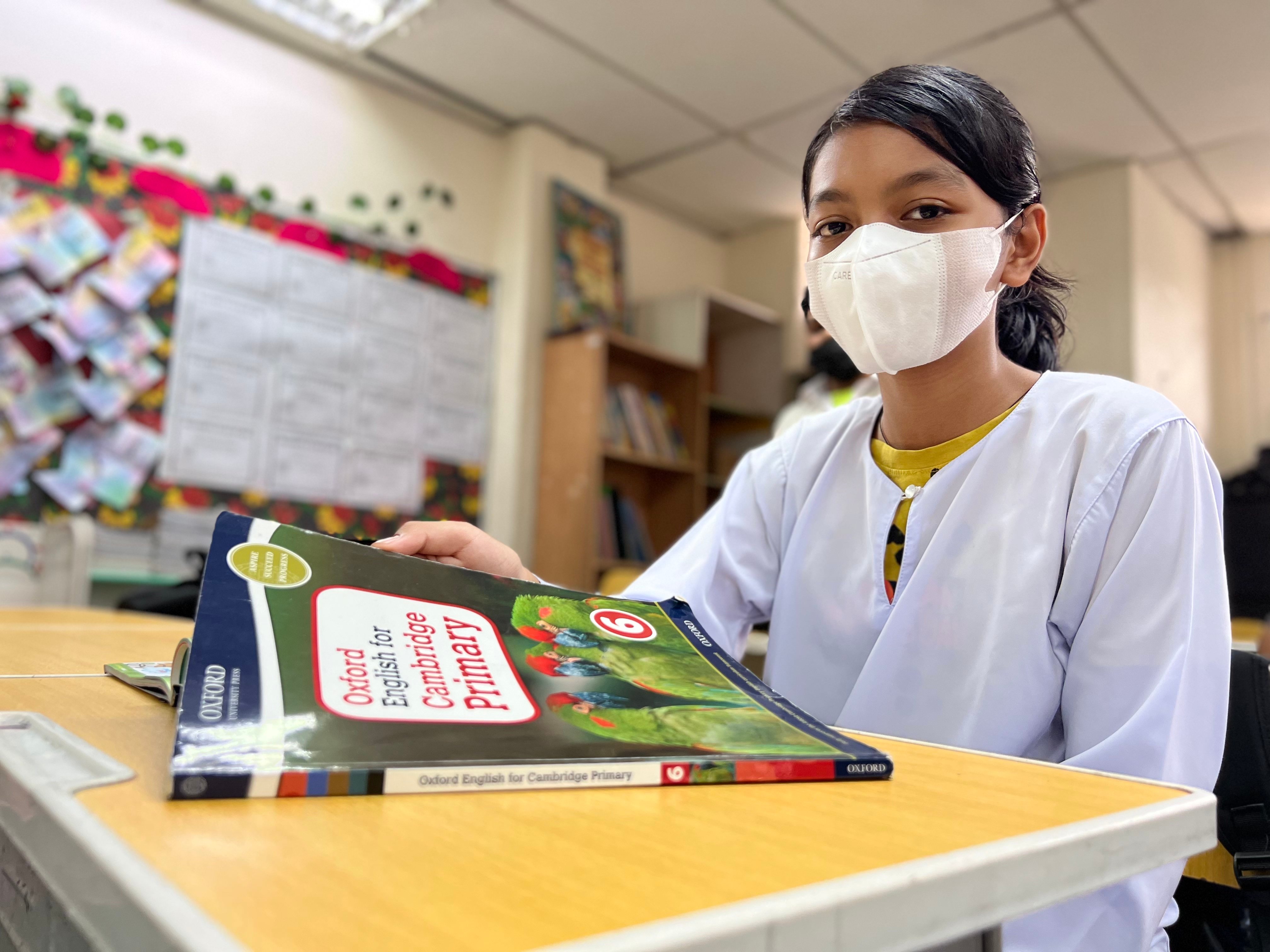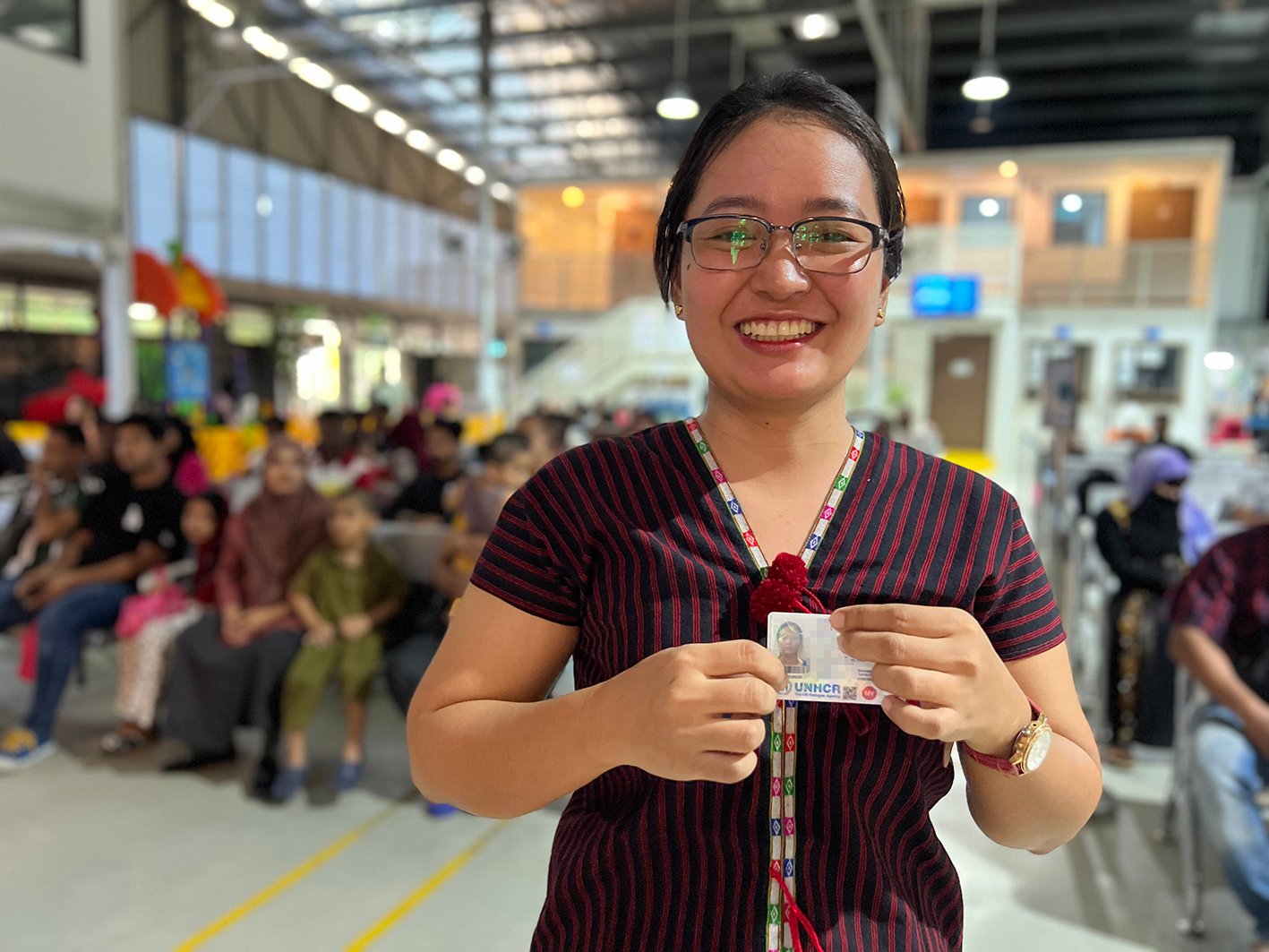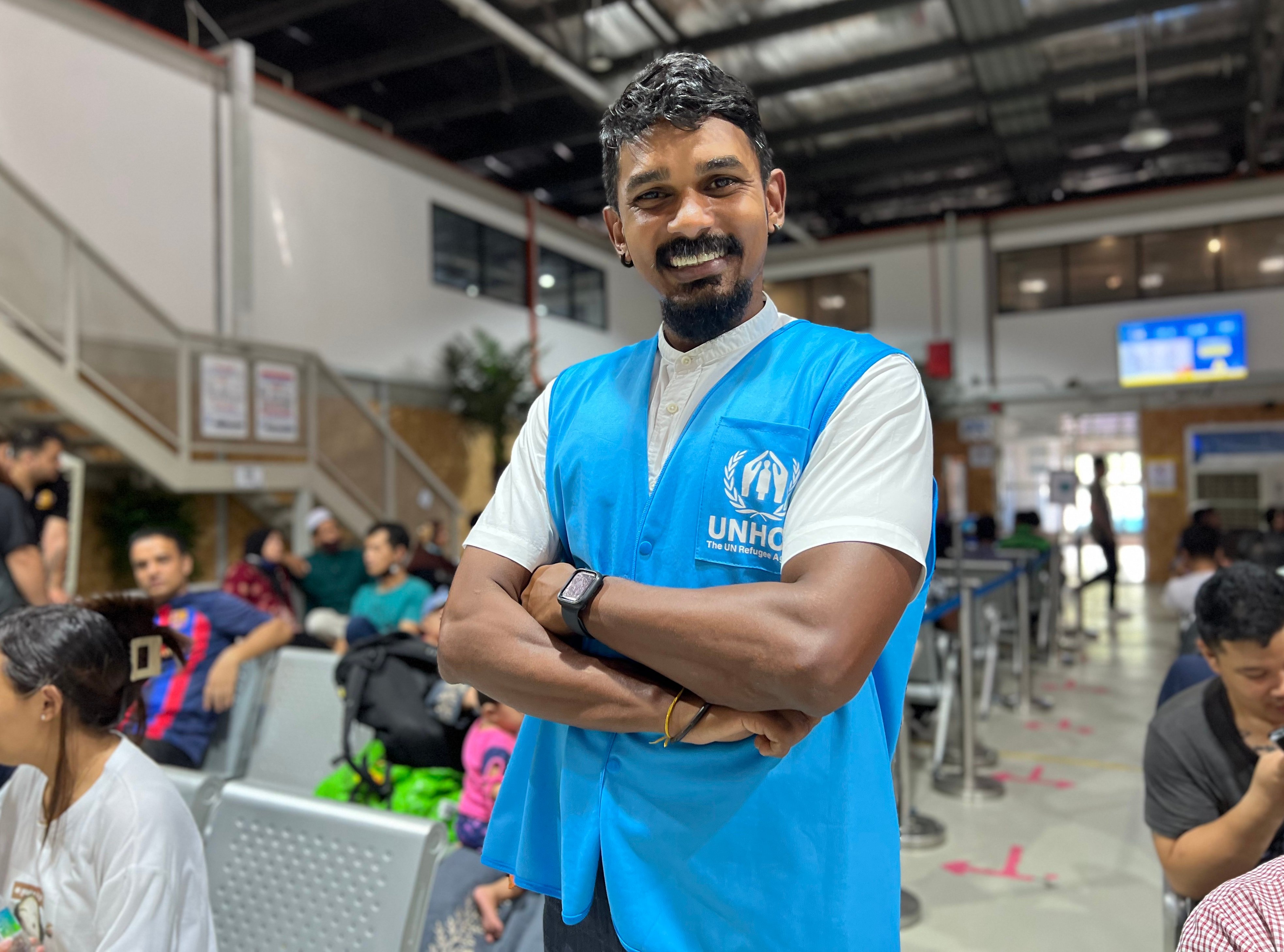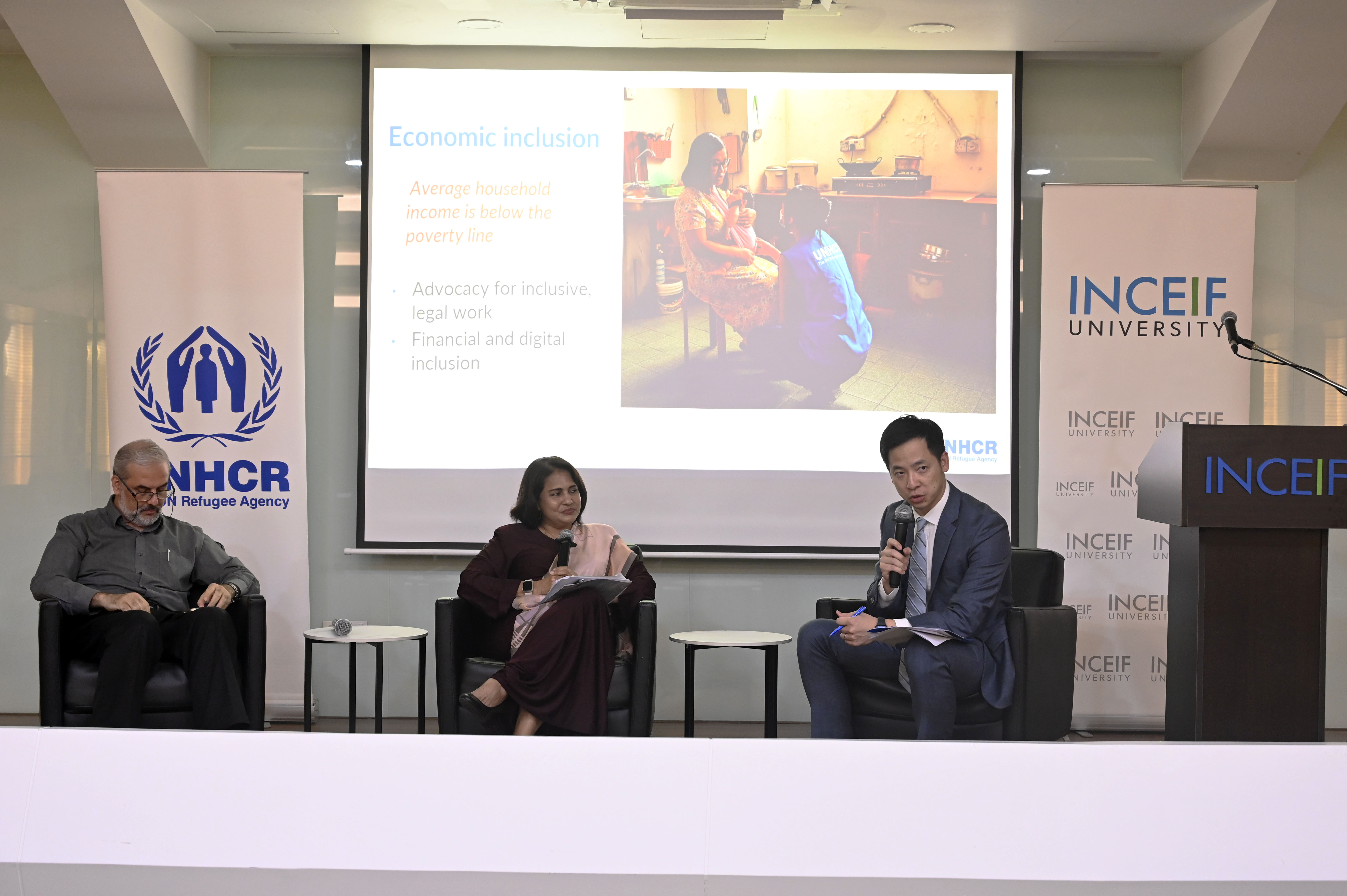Local Municipal Council leads the way in finding solutions for harmonious living of residents – Malaysians and refugees alike
Local Municipal Council leads the way in finding solutions for harmonious living of residents – Malaysians and refugees alike
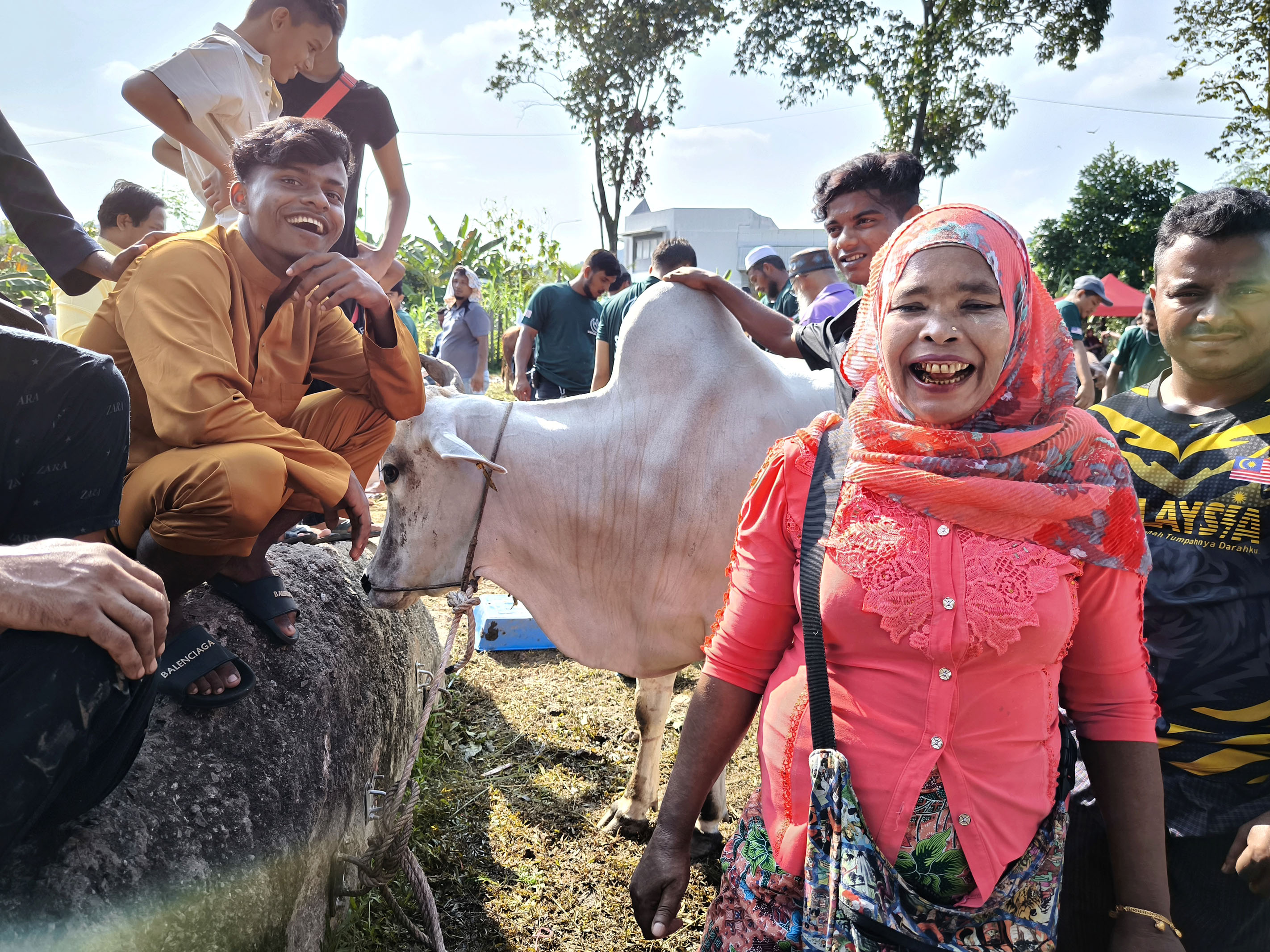
Myanmar refugee Rashidah and her family, on the morning of Eid-Al Adha
17 June 2024 – It was the morning of Eid Al-Adha. Since the early hours, a neighbourhood field in the district of Ampang Jaya an hour outside Kuala Lumpur became the gathering point for communities of Muslim refugees and migrants.
Myanmar refugee Rashidah and her seven children were among them. Her family had gathered on the field with others from the neighbourhood to observe Eid Al-Adha with a ritual sacrifice of livestock, or qurban.
Eid Al-Adha is a revered observance among Muslims, coinciding with the final rites of the Hajj pilgrimage in Saudi Arabia. Devout Muslims slaughter livestock and share two-thirds of the meat with the poor.
“We can’t travel to perform the holy pilgrimage to Mekah, so this is a way to practice our faith,” Rashidah said.
Rashidah has lived as a refugee in Malaysia for 37 years, after her family fled persecution in Myanmar. A single mother raising young children alone, Rashidah earned a wage for years working as a cleaner. Now, her grown sons also work to augment the family income.
“We all pooled our money to buy a cow for qurban this year,” said Rashidah. “All the meat will be distributed to the mosque and to the poor – Malaysians and non-Malaysians. We’re not keeping any meat. We will give to all who need it.”
There are currently approximately 189,000 refugees and asylum-seekers in Malaysia, some of whom are Muslim. Many, like Rashidah, practice Eid Al-Adha with the ritual sacrifice of livestock animals.
“We contacted the Municipal Council of Ampang Jaya - the local authority responsible for the cleanliness and well-being of residents in the area – to seek a discussion on helping refugees comply with standardised procedures when conducting qurban,” said Adli Zakuan Zairakithnaini, UNHCR head of humanitarian affairs.
“Refugees have no legal status in the country. Living in the fringes of society, especially in a foreign land, it is understandable how some refugee communities may lack full understanding of domestic regulations, procedures, and practices, and the impact of their behaviour to local communities.
“Our priority is to ensure these gaps in knowledge are addressed to reduce any friction between refugees and host communities that may arise from misunderstandings. Our interest is that refugees conduct practices like qurban within the parameters of local regulations and procedures.”
Dr Ani Ahmad, Chairman of the Municipal Council of Ampang Jaya, explained the Municipal Council’s intentions to better regulate qurban conducted by foreigners in the area.
“It is sometimes difficult for foreigners to conduct qurban at mosques or designated slaughter centres. Often, they resort to performing the qurban ritual at inappropriate locations like vacant lots, in housing areas, or industrial areas. This is often disruptive, unhygienic, and insensitive to the sentiments of local populations,” said Dr Ani.
UNHCR, together with Government departments involved in managing the qurban ritual as well as representatives from local mosques, were invited by the Municipal Council for a series of discussions on how qurban was conducted by foreigners, including refugees, and how to better manage it collectively.
“The Municipal Council designated four locations where foreigners could conduct qurban in the district,” said Dr Ani. “We agreed to provide amenities such as tents, clean water, waste disposal bins, cleaners, and traffic control.”

UNHCR staff sharing qurban guidelines with a refugee at UNHCR Malaysia
Ahead of Eid Al-Adha, UNHCR rapidly produced simple and clear guidance for refugee communities on local norms and practices, as well as regulations and agreed procedures around conducting livestock sacrifice, including safety and hygiene practices, as well as consequences and penalties for non-compliance.
These were then mass distributed through a variety of channels used for communicating with refugees, including through digital instant messaging platforms and UNHCR’s Refugee-Malaysia.org information portal. UNHCR also engaged refugee community representatives on the ground to disseminate the information and help answer questions.
On the morning of Eid Al-Adha, a UNHCR team was on the ground to monitor the implementation of this new procedure. Officers from the Municipal Council, including Dr Ani, were also present.
“Refugee community focal points had informed the Municipal Council in advance how many families would be conducting qurban in each location and how many cows would be sacrificed,” said Adli. “With structures and plans in place, we saw a smooth implementation of the qurban ritual in the four designated locations.
“UNHCR is deeply appreciative to the Municipal Council of Ampang Jaya for its exemplary leadership in identifying and implementing a solution that benefits the well-being of all residents – refugees, migrants, and Malaysians alike.”
Dr Ani said that managing the qurban rituals this way reduced complaints from local residents, especially around issues of the disruption to neighbourhoods, cleanliness and hygiene of slaughter locations, and traffic congestion while activities were underway.
“This kind of cooperation helps the Municipal Council more effectively carry out our responsibilities. It creates a harmonious environment with the local population and ensures every segment of society has access to better living conditions,” said Dr Ani. “We hope to see more of such cooperation in the future in line with the aspirations of the Sustainable Development Goals.”



